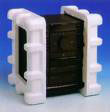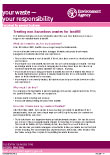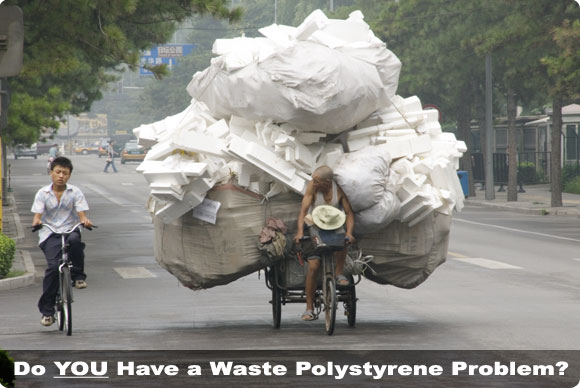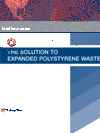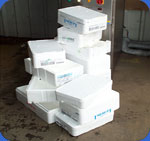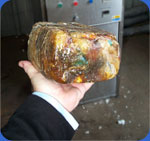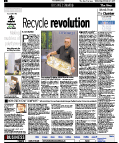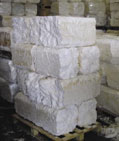Polystyrene (styrofoam) - The Problem
Polystyrene (styrofoam) is an excellent packaging material due
to its insulating and protective properties. Unfortunately, once
goods are delivered
and opened polystyrene then becomes a waste material that companies
must pay to dispose of. Large, bulky pieces of polystyrene can
take up significant space in a waste skip which means the skip
becomes full more quickly and therefore needs to be emptied more
often – therefore more cost.
It is conservatively estimated that hundreds of thousands of
tons of waste polystyrene is produced and sent to landfill
on an annual basis in the UK alone. This material is very
lightweight
compared to its volume so it is not hard to imagine how much
precious landfill space is filled with tons and tons
of polystyrene.
Disposing of Polystyrene has the following drawbacks:
- Boxes and packaging can take up large volumes of storage
space prior to removal.
- Fish/Meat packaging is contaminated with blood, fluids etc
and so can be a health hazard and attract vermin when in storage
prior to removal.
- Skip hire or running costs of disposal lorries are very high.
- Because boxes and packaging take up a lot of space transport lorries or skips are filled very quickly.
- High landfill charges make disposal expensive and bad for the environment
|
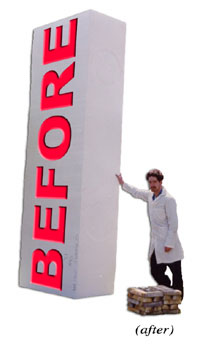
The Styromelt™ drastically reduces the volume of waste polystyrene
by thermal densification.
|
Styromelt™ - The Solution
The Styromelt machine from Styromelt Ltd essentially melts polystyrene
(styrofoam) to form a dense block of material that is reduced
in volume by
over
95%
of the
original material. So a 2 cubic metre load of polystyrene comes
out of the machine as a small block approximately 90cm x 25cm
x 5cm. The block can be stored then sold to recycling companies
who then turn it into fuels such as diesel or new products
such as garden furniture.
The densified blocks are sterile,
easy to handle and can be stored indefinately. This means that
several loads can be put through the machine over time until
sufficient quantities have been produced for either sale or disposal.
There is an emerging market for blocks for incineration,
recycling and for the production of fuels. Recyclate value
of blocks
is based on oil price and is currently £80- £170
per tonne based on volume.
Further benefits are:
- Processed blocks are recyclable as product or fuel and can
actually be sold to recyclers.
- Greater compaction rate - up to 10 times greater than hydraulic
compaction.
- In-situ sterilisation of plastic material means the product can be stored indefinately.
- Ability to deal with contaminants such as blood, organic
matter, metal, stone and glass without damage or failure.
- Thermal compaction is a batch process and incurs no energy costs until the machine is full. The machine could be described as an ‘electric skip’.
- Process is virtually silent running.
- Machinery can be operated with very few skills.
- Machinery occupies a small footprint, ideally suited for
retrofitting in supermarket or municipal areas.
- The machine
is weather proofed for outside use and is IP56 rated.
|
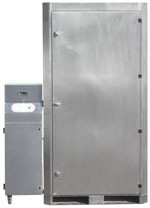
• Local Authorities
• Fisheries Industry
• Cruise / Ferry Industry
• Smoke Houses
• Manufacturers
• Hospitals
• Arenas
• Electronics Companies
• Waste Management
|
|






